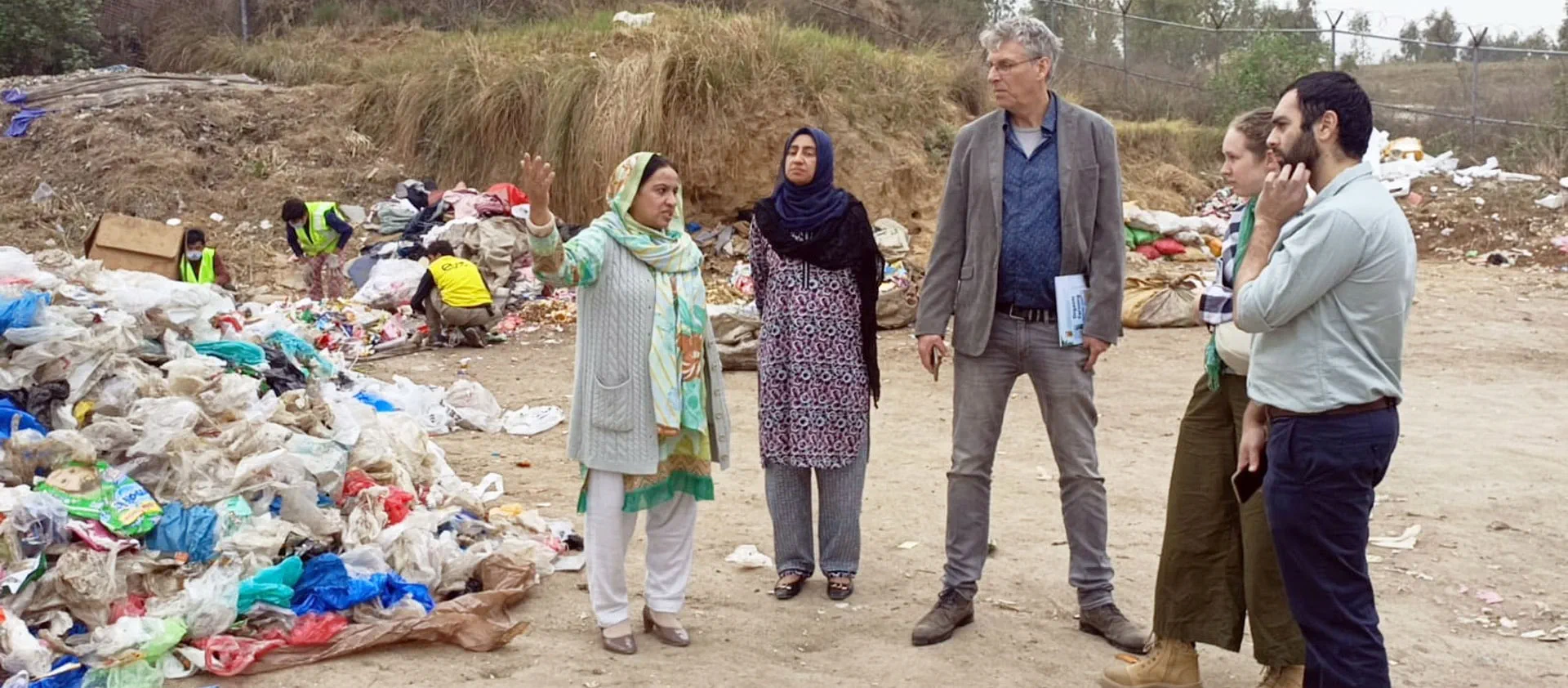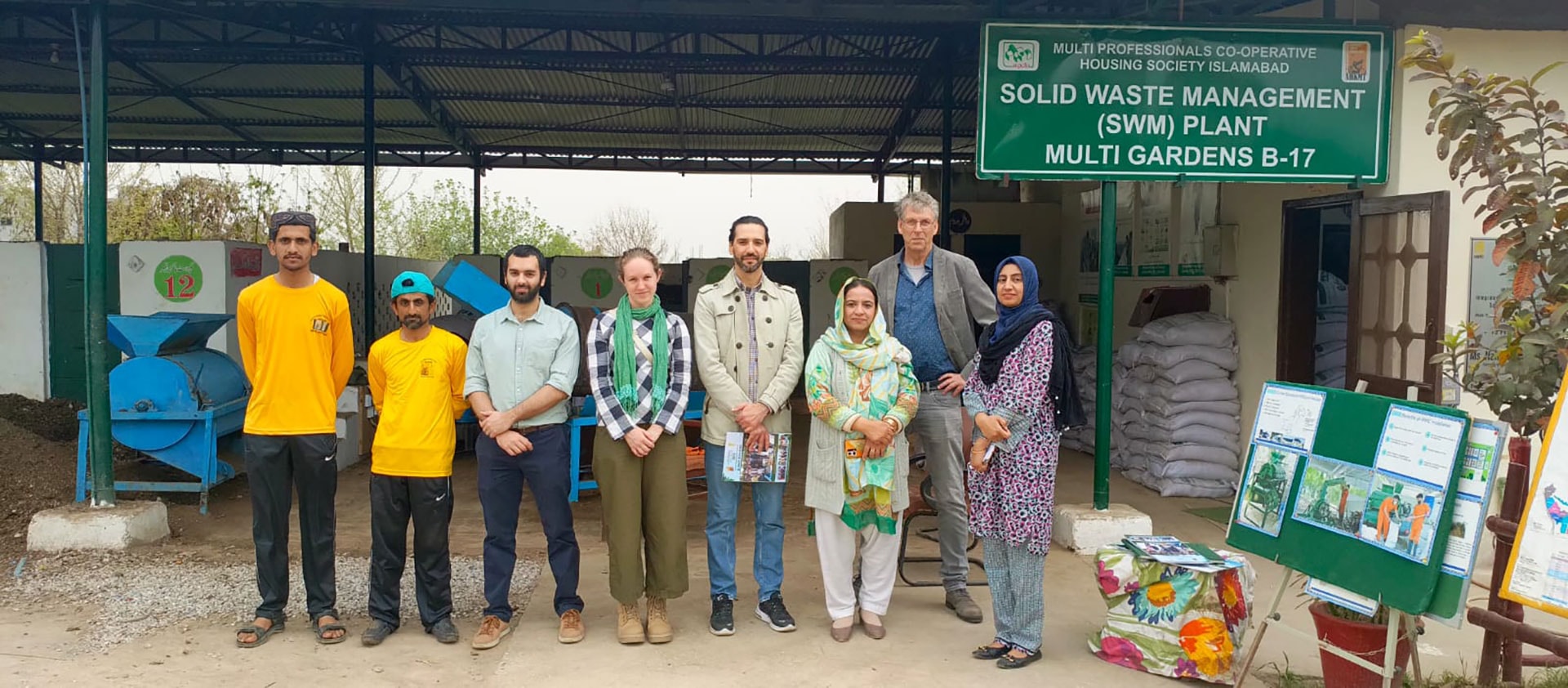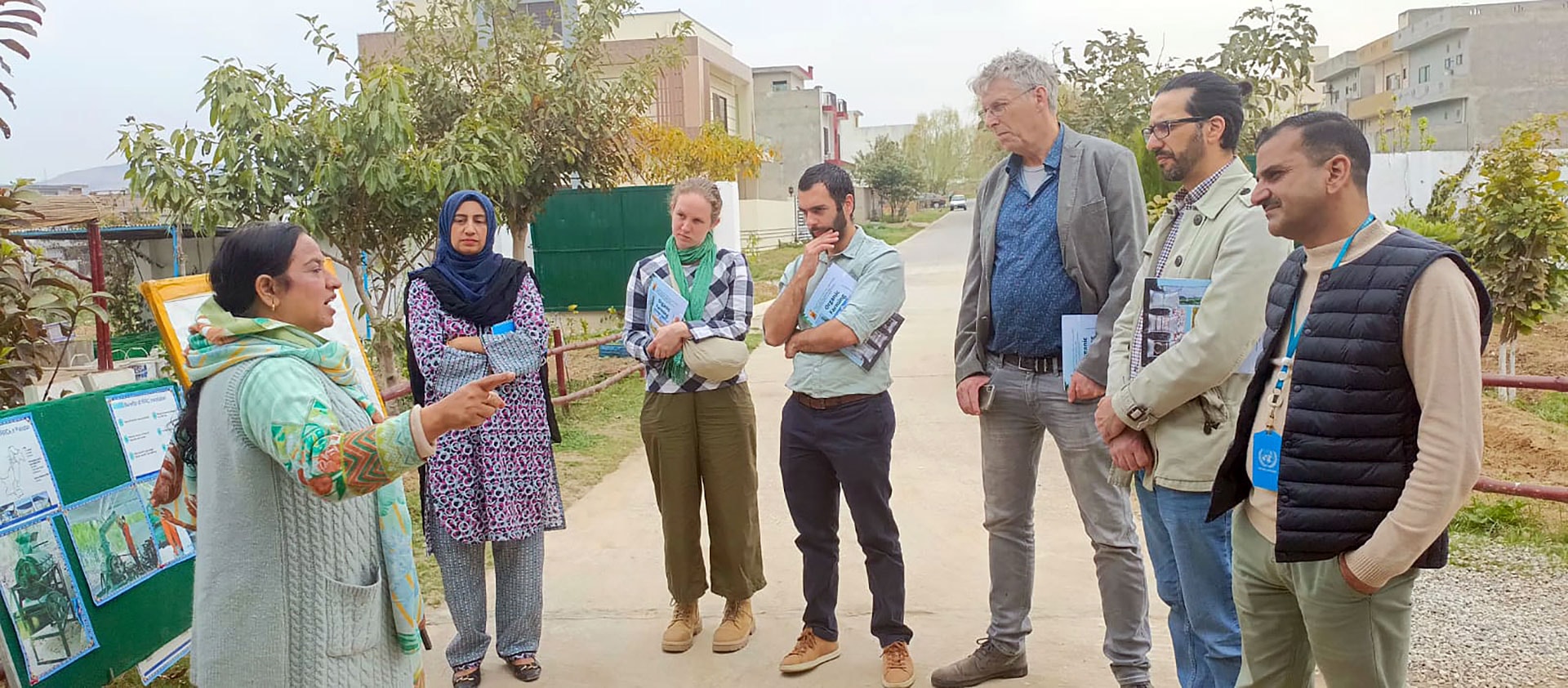In Pakistan’s Twin Cities of Islamabad and Rawalpindi, inadequate waste management threatens the health of people and the environment through pollution of land and water. These cities generate substantial amounts of solid waste every day and only a portion of this waste is collected and recycled. Improper disposal has led to significant environmental degradation and health hazards. The consequences of poor waste management then flow downstream to impact the 220 million Pakistanis residing in the Indus Basin as well as marine ecosystems of the Arabian Sea.
Urgent action is imperative to transform waste practices and reverse environmental degradation, curb greenhouse gas emissions associated with dumped waste, and promote the health and wellbeing of all who live, work, and play in the Twin Cities. By shifting the narrative to view waste as a valuable resource rather than a burden, we pave the way for a sustainable and healthier future for all.

Transformation through collaboration
Through the Shelter Program, Arcadis collaborated with UN-Habitat to develop and secure funding for a transformative solid waste management solution in the Twin Cities. Arcadians from Portugal, the Netherlands, Australia, and Canada worked in-country defining a technological solution and providing investment advice.
While in country, the Arcadis team engaged a diverse array of stakeholders, including the Ministry of Climate Change, Islamabad Capital Development Authority, Rawalpindi Waste Management Company, Dr Akhtar Hameed Khan Memorial Trust, and private businesses. This two-way consultation process allows local expertise and context to drive the solution, as local ownership is critical to achieving sustainable transformation.

Developing a holistic solution
The collaboration between Arcadis, UN-Habitat and various stakeholders yielded a solution that integrates waste technologies across neighbourhood and city scales to deliver a decentralised waste management system. Key technologies include Integrated Resource Recovery Centres (IRRCs) and Materials Recycling Facilities (MRFs), with potential future expansion using Engineered Landfills.
IRRCs are a low-cost neighborhood-scale solution that collect and sort household waste into organic, recyclable, and residual waste streams. Organic waste is converted onsite into compost that can be sold to improve household and agricultural soil quality.
Recyclable material, such as plastic, is recovered and sent to recycling facilities for further processing. MRFs provide a solution at the city scale, receiving and processing recyclables from urban areas. Both solutions divert waste from open dumpsites and allow organic and recyclable materials to re-enter the value chain, thus contributing to a circular economy.
As the waste management system matures, a focus must remain on developing an engineered landfill to hygienically dispose of residual waste. This is an important measure to shield groundwater from leachate contamination, therefore laying the groundwork for a healthier and more sustainable future.

Improving Quality of Life
The integrated solution has been designed for the Twin Cities to enhance surface and groundwater quality, curtail greenhouse gas emissions, improve public health, facilitate a circular economy, and spur employment opportunities. As a result the collected waste that is recyclable can be returned to the value chain, contributing significantly to the local economy, and improving overall quality of life.





